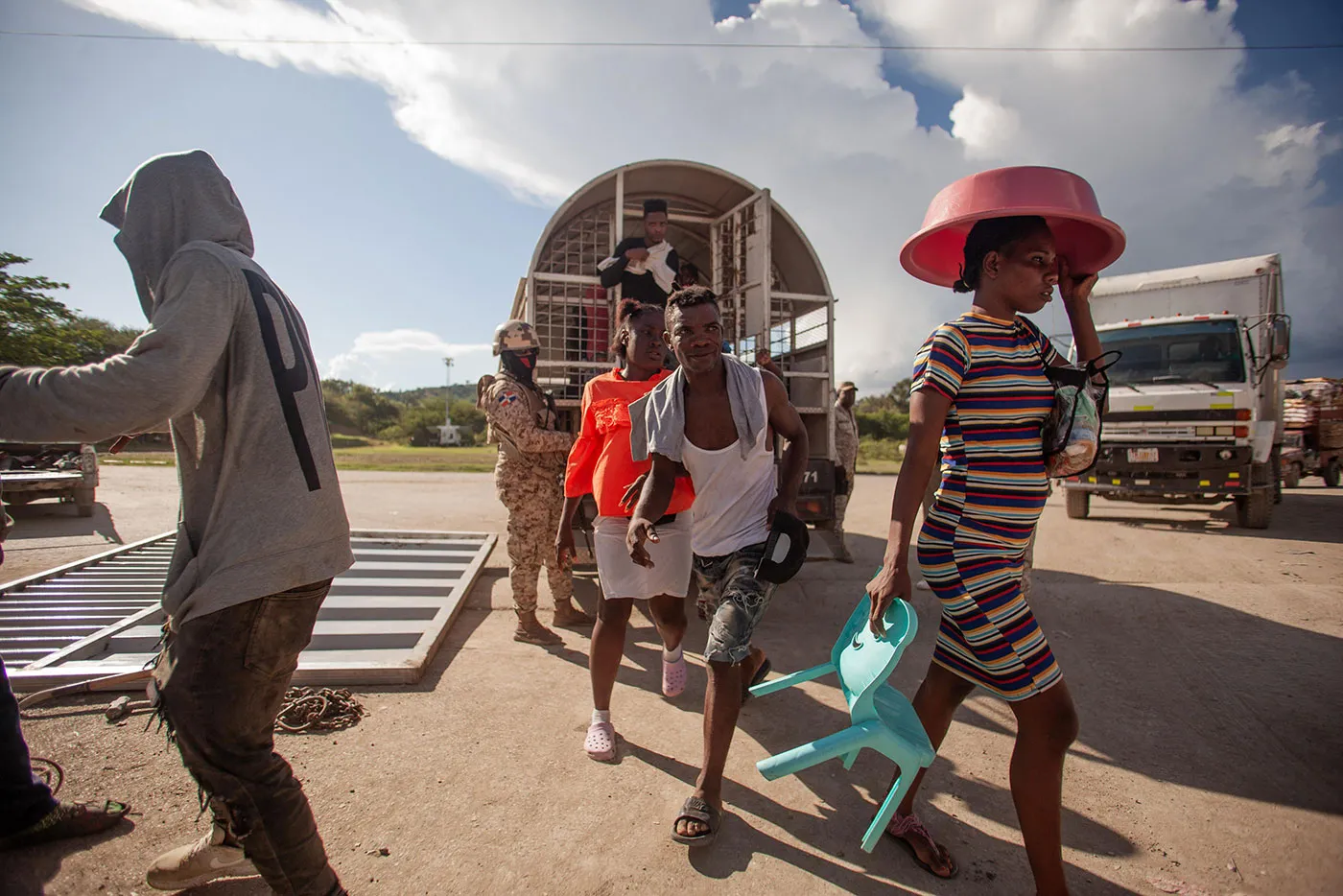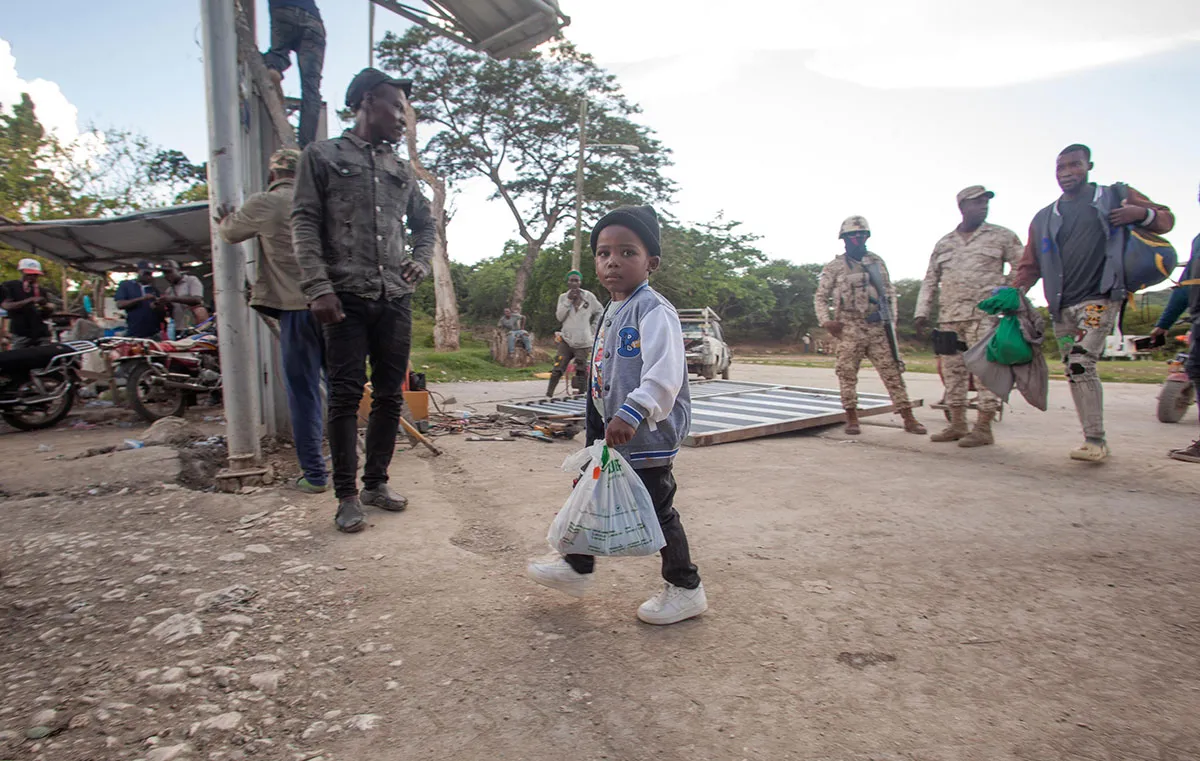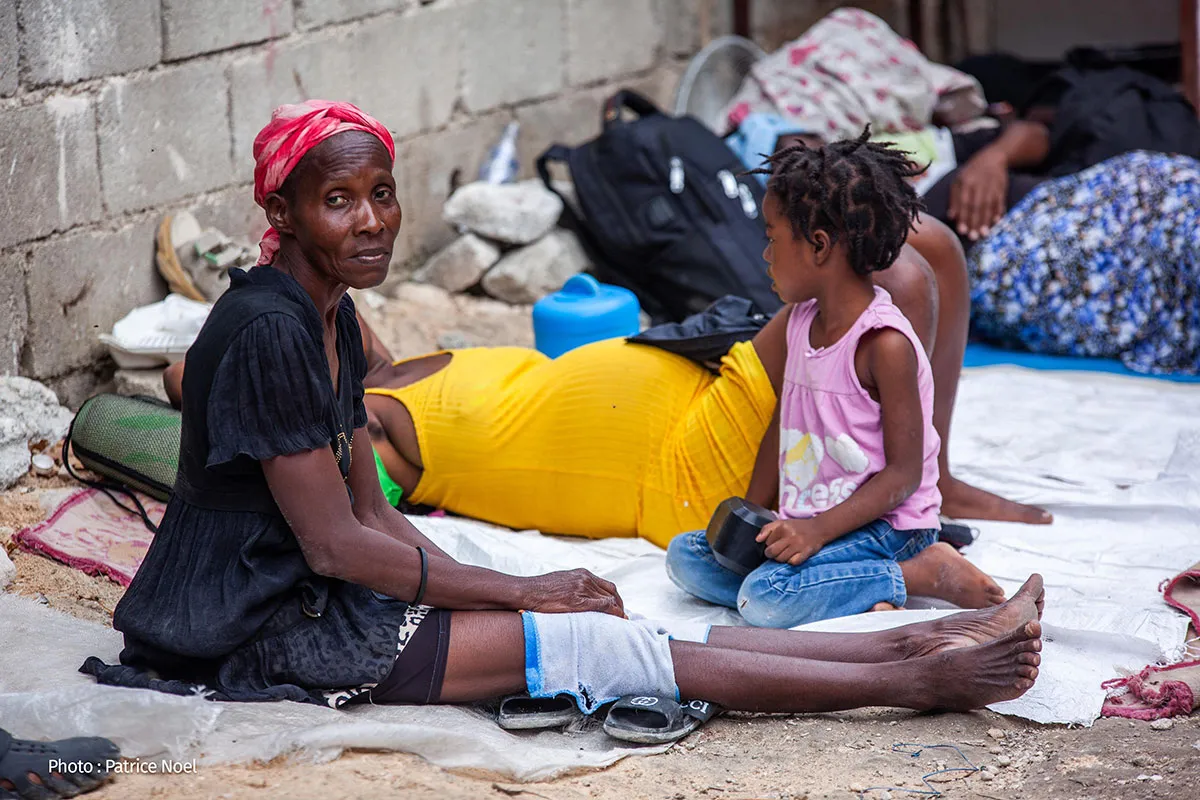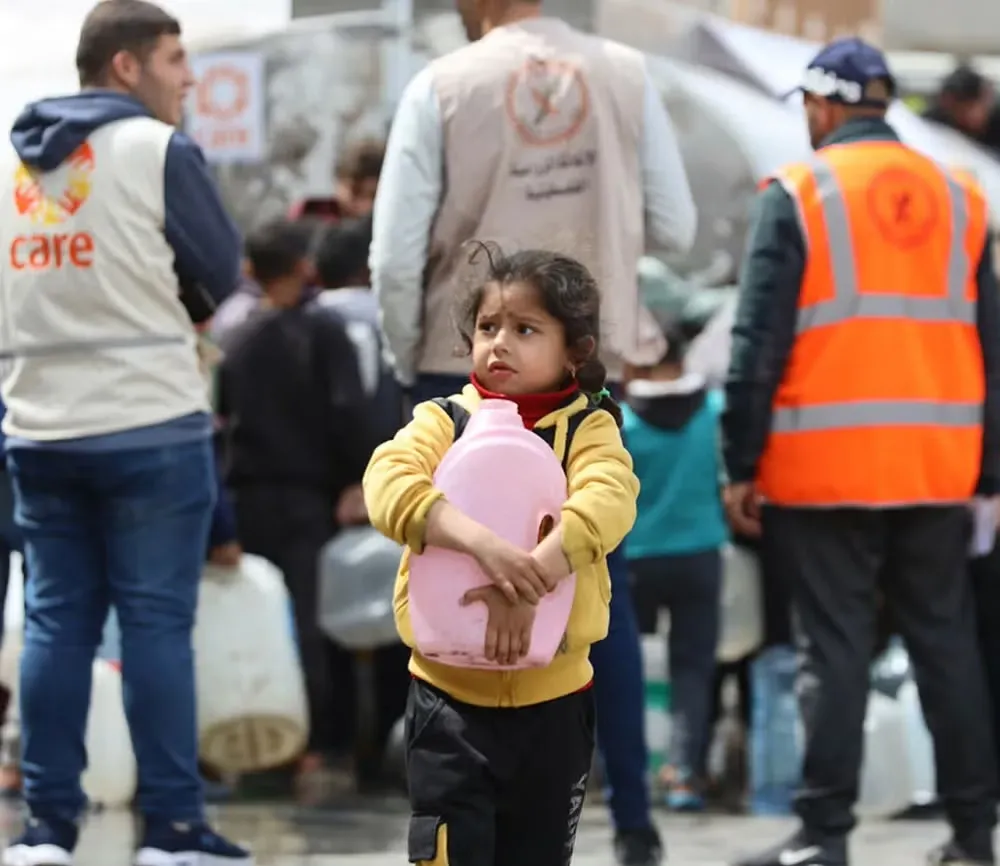Haiti Humanitarian Crisis: Deportation and Internal Displacement

The mass deportation of Haitians from the Dominican Republic intensifies the humanitarian crisis in Haiti. Photo credit: CARE Haiti
Current emergencies
- 2023 earthquakes continue to impact millions in Türkiye and Syria
- Afghanistan Humanitarian Crisis
- CARE COVID-19 Response
- Cyclone Idai
- Ebola Crisis in the Democratic Republic of Congo
- Ethiopia Humanitarian Crisis
- Haiti Humanitarian Crisis: Deportation and Internal Displacement
- Mali Humanitarian Crisis
- Myanmar Refugee Crisis
- Nigeria Conflict and Humanitarian Crisis
- Somalia Food Insecurity Crisis
- South Sudan Humanitarian Crisis
- Sudan Humanitarian Crisis
- Syrian Refugee Crisis
- Uganda Health and Refugee Crisis
- Ukraine Humanitarian Crisis
- Venezuela Refugee Crisis
- West Bank/Gaza Crisis
- Yemen Humanitarian Crisis
- Zimbabwe Food Insecurity Crisis
The crisis in Haiti continues to deteriorate rapidly, due to mass deportations from the Dominican Republic and the ongoing internal displacement of people fleeing gang violence. These phenomena have exacerbated an already precarious situation, where women and children are particularly at-risk. The numbers of displaced persons continues to rise, with thousands of people desperately seeking shelter and support.

The Dominican Republic have been carrying out a deportation campaign that intensified in early October 2024. This campaign has significantly affected the Haitian population, hitting massive numbers, with over 25,000 deportations already reported during that month alone. This trend is far from stopping, and deportees find themselves in extremely precarious conditions, often lacking identity documents and support for reintegration into Haiti.
Haitian authorities are struggling to manage the influx of deported migrants, particularly in border regions that are already overwhelmed. The humanitarian response is complex, especially with armed gangs who control 80% of Port-au-Prince and several national roads, hindering delivery of aid throughout the country.
CARE Haiti, present in several communities near the border, continues to monitor the situation and strengthen its interventions in these areas, particularly to support the most affected, especially women and children.
thousand
people were deported from October 2-29, 2024, and the figure rises every day
Internal displacement in Haiti: Residents of Port-au-Prince fleeing gang violence
Since February 2024, over 700,000 people have fled Port-au-Prince due to gang violence. This mass displacement has been amplified by the escalating violence perpetrated by armed groups. The Artibonite department – a central administrative division – has also been severely affected by gang violence, resulting in hundreds of casualties among the population and sending thousands out of their homes. The displaced have sought refuge in makeshift camps and resource-constrained rural areas countrywide, particularly in the southern area. While the need for shelter, food, transportation, health care and psychosocial support is increasing, resources are extremely limited.
CARE Haiti continues to support displaced populations through its projects, including providing hygiene kits, food assistance, cash transfers and protection services. However, the ever-increasing number of displaced people and the prolonged crisis are straining response capacities.

thousand
people have been internally displaced since February 2024
How to help Haiti: What CARE is doing
CARE Haiti remains committed to addressing the needs of displaced and deported people, focusing on food distribution, water, and sanitation, and the safety and empowerment of women and girls. We have extended our presence in the areas to manage the influx of displaced people, but the increasing number of people in need requires a continuous reassessment of needs.
In response to the ongoing crisis, CARE, in collaboration with its local partner IDEJEN, has implemented a project to support young mothers and women victims of gang violence in the metropolitan area of Port-au-Prince. Launched in 2024, this project focuses on 10 sites for displaced persons, supporting 200 families led by women. These women have been forced to flee their homes and neighborhoods due to overwhelming gang violence. More and more households are living in public areas and IDP camps in and around the capital city. With the support of CARE, they were able to receive cash transfers to buy food, cover transportation costs to travel back to their region of origin, and psychosocial training to help them overcome the trauma associated with the raging violence and insecurity. The project also helped sensitize internally displaced people on protection from sexual abuse, harassment, and exploitation.
In addition to this initiative, CARE continues to manage four other projects across Haiti, covering six of the 10 departments: Grand-Anse, Southeast, Northeast, Central Plateau, Artibonite, and Northwest. The projects aim to provide emergency food assistance to over 5 million people, protect displaced people and provide psychosocial support and essential services, and strengthen community resilience. They also support smallholder farmers, especially women, in rural areas to resume farming and move beyond needing emergency food assistance.
Statement from CARE Haiti Country Director
“The challenges are enormous, as the number of displaced people and deportees continues to grow at an alarming rate. Simultaneously, the food security situation in Haiti has been declining for the past 5 years. The latest data show that 48% of the population, 5.4 million people, are in a food crisis or worse. CARE has already set up assistance projects in Port-au-Prince and throughout the country, but given the scale of the crisis, we will carry out an in-depth assessment of the specific needs especially of women and girls, considering their voices and concerns in our response. We will continue to work with our partners to provide sustainable support and respond to needs in a more targeted way.”
— Martin Dickler, CARE Haiti Country Director
*Last updated November 2024

Help CARE respond to emergencies.
CARE is there delivering lifesaving aid and defending the lives of families in crisis.
Donate now